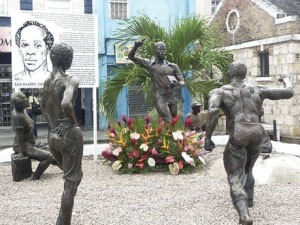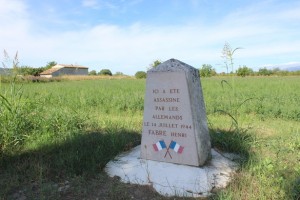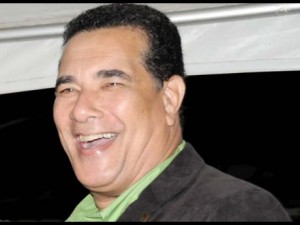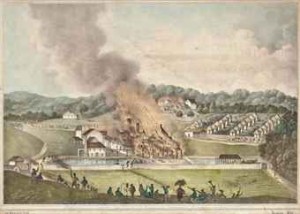
Acknowledging Our History Should Be More Than Grand Speeches
January 4th, 2017
A people without the knowledge of their past history, origin and culture is like a tree without roots. – Marcus Garvey
Jamaica’s history is a turbulent one, like the histories of many nations. Colonialism, slavery and conflict dominate the landscape. However, this is what made us. Here we are today, at the beginning of 2017, with much to look forward to and much hard work to be done. What are the lessons learned, if any, from our past, and how can they be made relevant (and real) today to the “average Jamaican”?
I was heartened recently to hear the new Mayor of Montego Bay Homer Davis say he would like to make the anniversary of what is called the Christmas Uprising a more significant event on the city’s calendar. Heartened because this was, in fact, a very important milestone in Jamaican history – a drama in which National Hero Sam Sharpe was the key actor and instigator. Two rebellions took place on December 25, 1831 and on January 4, 1832. Over 500 slaves died – either killed during the riots or executed afterwards. It’s also good to know that the Holness administration plans to absolve Jamaica’s acknowledged heroes by giving them historical pardons. I wrote about this recently in this Global Voices report. I hope it will not take too long.
Well, we know the facts (or at least most of them) about the Christmas Uprising. We can read about it in books. But apart from the fact that he was a National Hero, and his name is familiar to us (Sam Sharpe Square, and Sam Sharpe Teachers’ College ) we could delve deeper and ask questions. For example: What kind of man was Sam Sharpe? What were his religious beliefs and how important were they to him? Could he read and write? What was his ancestry? Was he a tall man? Was he physically strong? Was he a good preacher? How did his voice sound? And so on. We would have to look at historical records (and also perhaps use our imagination a little) to try to answer these questions. But wouldn’t they help us to see Sam Sharpe as a real man, a Jamaican man who helped shape Jamaica’s future – and the “now” that we live in?
In other words, wouldn’t seeking to answer these questions help to bring Sam Sharpe to life?
I agree with Mayor Davis: a greater awareness of history is needed, through events and activities that involve as many residents as possible. For Montego Bay – a city that currently has a somewhat tarnished image, at least in the eyes of many Jamaicans – this could also be an attraction for visitors and tourists, who are in greater numbers during this season. Note: In the same speech, the Mayor called for a State of Emergency in the city, because of the wave of murders. Let us keep the stiff ceremonial events to a minimum, though. Local politicians making grand speeches to people sitting in rows in the hot sun, with bored officials in suits fidgeting with their cell phones and crying babies providing background noise, is not the best way to commemorate a powerful figure like Sam Sharpe (or any other significant figure in our history). The obligatory drumming sessions and children’s dub poem performances are fine, up to a point, but we have “been there, done that,” haven’t we.

The statue in Sam Sharpe Square in Montego Bay. Now let’s bring the statues to life! (Photo: diGJamaica)
Let’s use our imagination. How about a re-enactment (as historically accurate as possible) of an event in Sam Sharpe’s life – or a powerful sermon he gave, for example? If we know the exact locations of the dramatic, courageous and terrible events of the Uprising, a re-enactment could be staged in those places. Those who attended would never see the place in the same light again. It would become rooted in history, alive again.
All this costs money, you might say. However, perhaps residents, service clubs, youth clubs, churches and educational institutions could be asked to chip in. College students could be performers (including students of drama, dance and music). Local firms could contribute in cash or kind. It does not have to be highly elaborate, but it could become more of a community event, with the support of government agencies such as the SDC. Creative, imaginative – with less of the stuffy and staid effect that, unfortunately, official government ceremonies tend to have. Citizens could be active participants, rather than a passive audience, sitting and waiting for refreshments to be served. These events cost quite a lot of money, too.

“Here Henri Fabre was killed by the Germans, July 14, 1944.” The rural spot where a member of the French Resistance was caught and executed by the Germans during World War II. (Photo: atlasobscura.com)
One more thing. I remember how moved I was, when driving through France, to find small monuments by the roadside or in a field (sometimes just a simple inscribed stone), recognizing that several brave French citizens (members of the Resistance) had been shot by the Nazis at that spot. Names and a date; but how powerful these alone can be. I would like to see far more commemorative plaques and small signs such as these, pointing to historical events that actually happened in specific locations, around the island. I realize this would be the purview of the Jamaica National Heritage Trust, perhaps. These stones help us to remember. They don’t have to be fancy sculptures; just a recognition.
We need to keep in touch with our history – and keep it alive. After all, we are living history ourselves.
Tags: Christmas Rebellion, Jamaica National Heritage Trust, Mayor of Montego Bay, Montego Bay, National Hero, Sam Sharpe, war
The Gleaner reserves the right not to publish comments that may be deemed libelous, derogatory or indecent.
To respond to The Gleaner please use the feedback form.
- We Are the Zoomers
- Living Online with Humans and Birds: NAOC 2020
- Human Trafficking and the Problem of Public Education
- Down Memory Lane
- Are We Ready to Recover from COVID-19?
- Road Safety Matters: Is Your Vehicle Safe?
- Sexual Harassment, Me Too, and the Minister’s Disturbing Giggle
- The Vulnerable Senior Citizens, Private Care Homes and COVID-19
- A Muddle Over Masks
- Here is Something Life-Saving You Can Do: Give Blood!




